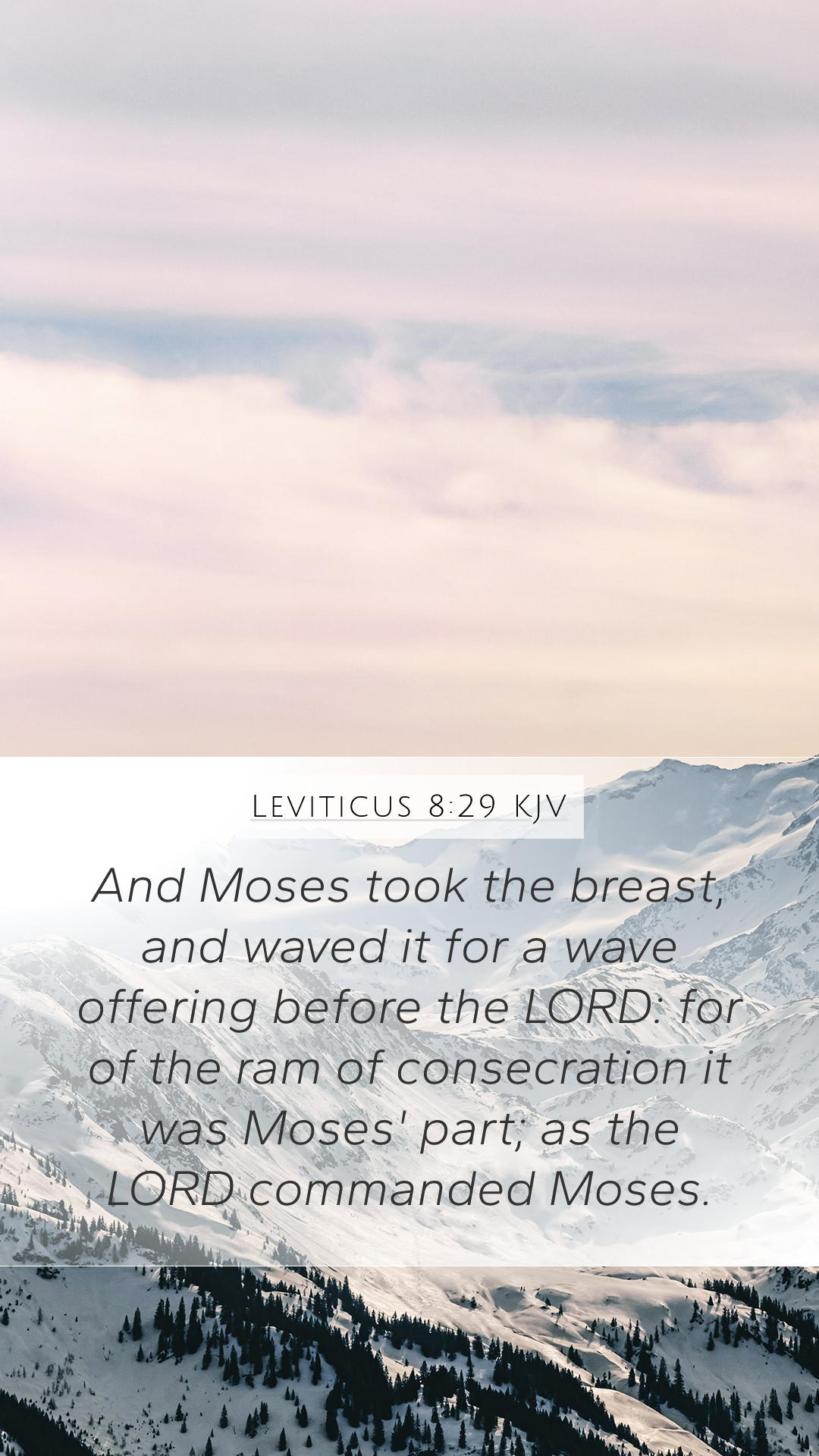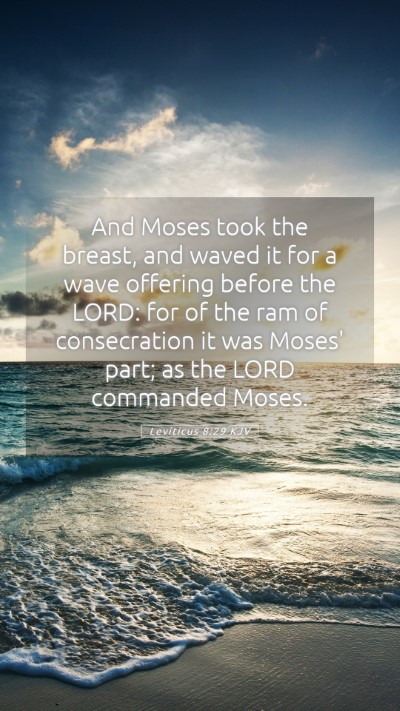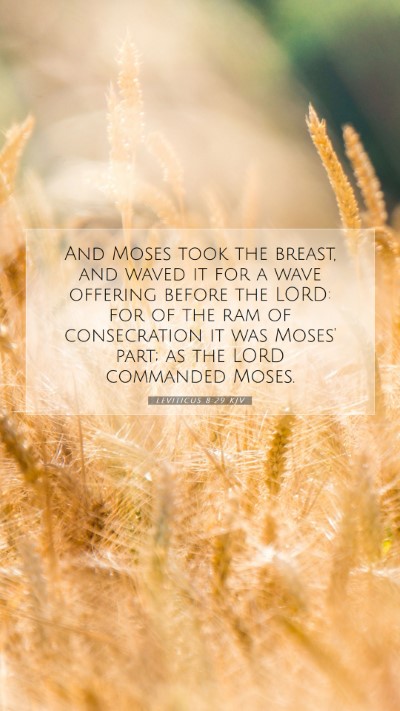Understanding Leviticus 8:29: A Bible Verse Commentary
Leviticus 8:29 states:
"And Moses took the breastplate, and put it upon Aaron; and he also gathered together the anointing oil, and the blood of the sin offering, and sprinkled them upon Aaron, and upon his garments; and he sanctified Aaron, and his garments, and his sons, and his sons' garments with him."
This verse encapsulates significant themes of sanctification, priestly duty, and the importance of the ceremonial act in Old Testament worship. Below, we delve into various interpretations and insights provided by notable public domain commentaries.
Key Themes and Meanings
- Consecration of the Priest: This verse is primarily about the consecration of Aaron and his sons, setting them apart for a holy service to God (Matthew Henry). It emphasizes the spiritual significance of being ordained as priests in Israel.
- Use of Anointing Oil: The anointing oil symbolizes the presence of the Holy Spirit, indicating that the anointed ones are filled with divine authority and power (Adam Clarke). This act also signifies the empowerment of those serving in sacred roles.
- Blood of Sacrifice: The mention of blood connects the act of consecration to the sacrificial system of Israel, where blood represents atonement for sin (Albert Barnes). The sprinkling of blood ensures that Aaron and his garments are cleansed and ready for their sacred duties.
- Ritual Significance: The detailed ritual underscores the importance of following God's prescribed ways in worship, showcasing that God requires adherence to His commands (Matthew Henry). This serves as a reminder of the sanctity involved in approaching God.
Historical Context and Implications
The context of Leviticus finds Israel in the wilderness, learning to live as God's covenant people. The ceremonial laws were instituted to guide them in holiness and righteousness, and this verse is central to the establishment of the priesthood. Aaron's consecration marks a pivotal moment, as he and his sons were to lead the nation in worship and service to God.
Insights from Public Domain Commentaries
Matthew Henry's Commentary:
According to Matthew Henry, this verse stresses the importance of the priesthood's role in mediating between God and the people. The act of consecration wasn't merely cosmetic; it carried the weight of spiritual responsibility and a call to holiness.
Albert Barnes' Notes:
Albert Barnes points out that the sprinkling of the blood and the anointing oil together is a profound illustration of how the priest must be both cleansed from sin and filled with the Spirit. This duality is essential for fulfilling the role of a priest effectively.
Adam Clarke's Commentary:
Clarke emphasizes that the rituals prescribed in this chapter are not arbitrary but reveal deep spiritual truths about God's desire for His people to be holy and set apart. The anointing oil is a critical element, signifying a special designation that carries spiritual implications and responsibilities.
Application in Today’s Context
Understanding Leviticus 8:29 can guide modern readers in their own consecration to God. Just as Aaron and his sons were set apart for a holy purpose, believers today are called to live lives dedicated to God’s service. The principles of purification and anointing remain relevant; hence, individuals are challenged to seek God's Spirit in their lives and ensure their paths are made holy through repentance and faith.
Related Bible Verses
- Exodus 29:7 - The installation of Aaron as High Priest.
- 1 Peter 2:9 - Believers are called a royal priesthood.
- Hebrews 9:22 - Discussion on the necessity of blood for forgiveness.
- Leviticus 21:10 - Instructions for the High Priest's conduct.
- James 5:14 - The anointing of the sick with oil as a form of healing ministry.
Conclusion
The examination of Leviticus 8:29 illustrates vital principles regarding the sanctification process, the importance of spiritual authority, and the call to holiness. Understanding these elements aids in grasping the broader message of Scripture and its application in contemporary Christian life. For those seeking deeper Bible verse meanings and interpretations, such insights from commentaries can provide valuable context and understanding.


